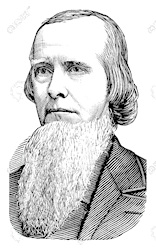Milledgeville [Ga.], Feby. 12th, 1861.
Dear Sir: I have appointed Lewis F. Kenan Captain and young Mr. Barrow 2d Lieut, as you and others of the Georgia delegation requested. Col. Kenan’s course, while a political opponent, has been towards me high toned and honorable, and it affords me much pleasure to appoint his son who is a worthy and promising young man.
Col. Barrow is here now with his so. The positions are now all filled in the two regiments and we shall go immediately to enlisting men. There will be great difficulty in getting them for [5?] years, hence I shall fix the term at 3 years. We hope to transfer them immediately after they are raised to the Govmt. of the Confederate States.
I have just received Gov. Cobb’s telegram informing me that the Congress has taken under its charge the question of the forts, etc. I suppose it desires me to hold Pulaski till it has men to garrison it. I am happy to hear of so much harmony in the Congress.
Permit me in conclusion to tender you my sincere congratulations on your election with unanimity to the high position you now occupy.[i] I have not the pleasure of a personal acquaintance with the President, but regard the selection a good one, as his wisdom and statesmanship are known to all to be of the most profound and highest order. May the God of our fathers, whose aid I try always to invoke, aid and guide the President, yourself and the Congress in this hour of trial.
[i] The vice-presidency in the provisional government of the Confederate States.
From Annual Report of the American Historical Association for the Year 1911.
Joseph Emerson Brown (April 15, 1821 – November 30, 1894), often referred to as Joe Brown, was an attorney and politician, serving as the 42nd Governor of Georgia from 1857 to 1865, the only governor to serve four terms. He also served as a United States Senator from that state from 1880 to 1891.
A former Whig, and a firm believer in slavery and Southern states’ rights, Brown was a leading secessionist in 1861 and led his state into the Confederacy. Yet he also defied the Confederate government’s wartime policies: he resisted the military draft, believing that local troops should be used only for the defense of Georgia; and denounced Confederate President Jefferson Davis as an incipient tyrant, challenging Confederate impressment of animals and goods to supply the troops, and slaves to work in military encampments and on the lines. Several other governors followed his lead.
Alexander Hamilton Stephens was an American politician who served as the vice president of the Confederate States from 1861 to 1865. After serving in both houses of the Georgia General Assembly, he won election to Congress, taking his seat in 1843. After the Civil War, he returned to Congress in 1873, serving to 1882 when he was elected as the 50th Governor of Georgia, serving there from late 1882 until his death in 1883.
